April 18, 2025 | 07:28 GMT +7
April 18, 2025 | 07:28 GMT +7
Hotline: 0913.378.918
April 18, 2025 | 07:28 GMT +7
Hotline: 0913.378.918
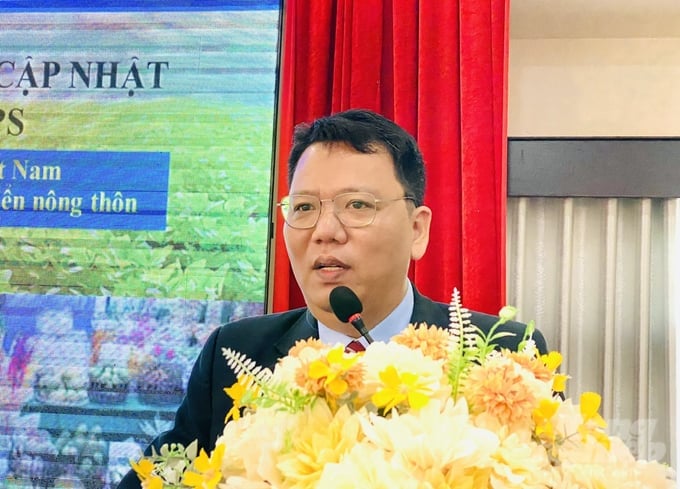
Mr. Ngo Xuan Nam, Deputy Director of the Vietnam SPS Office under the Ministry of Agriculture and Rural Development. Photo: Le Hoang Vu.
The Vietnam SPS Office under the Ministry of Agriculture and Rural Development, in collaboration with the Dong Thap province's Department of Agriculture and Rural Development, organized a conference on October 27 to disseminate information regarding SPS regulations and commitments in the Free Trade Agreement between Vietnam and the United Kingdom of Great Britain and Northern Ireland (UKVFTA). The conference addressed concerns regarding sanitary and phytosanitary measures for businesses, cooperatives, associations, and farmers in Dong Thap Province.
According to Mr. Ngo Xuan Nam, Deputy Director of the Vietnam SPS Office under the Ministry of Agriculture and Rural Development, farmers primarily focused on achieving higher yields in the past. However, since Vietnam's accession to the WTO in 2007, the Ministry of Agriculture and Rural Development has emphasized the quality and food safety of agricultural products. This crucial transition aims to safeguard the health of consumers both domestically and internationally. Additionally, the export and import of agricultural products to any country necessitate that these products remain disease-free to prevent the spread of diseases from one country to another.
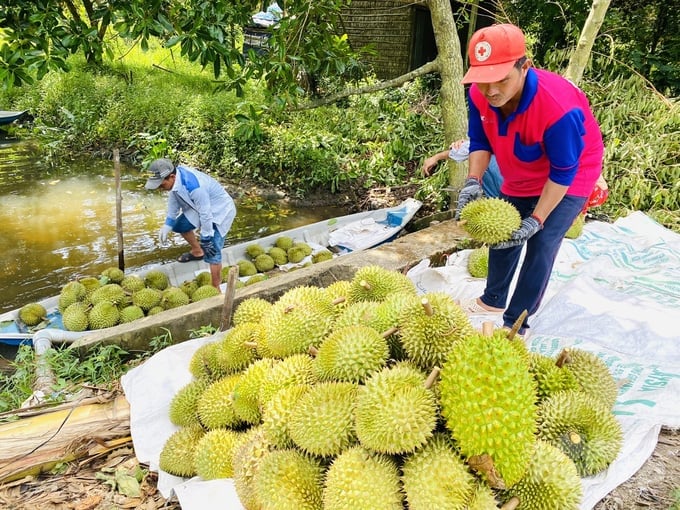
Farmers primarily focused on achieving higher yields in the past. However, since Vietnam's accession to the WTO in 2007, the Ministry of Agriculture and Rural Development has emphasized the quality and food safety of agricultural products. Photo: Le Hoang Vu.
According to Mr. Nam, Vietnam has received 1,000 notifications from WTO member states regarding various measures to prevent the spread of diseases in the export and import of agricultural products from Vietnam. Most notably, 80% of these notifications serve as warnings regarding the excessive levels of pesticide residues in Vietnamese agricultural products. Additionally, businesses can suffer in terms of reputation and disposal costs when they receive warnings regarding the excessive levels of pesticide residues in their agricultural products. Moreover, these warnings can have extensive impact on the overall reputation of Vietnamese agricultural products.
The European Union (EU) issued 31 violation warnings with regards to the export of agricultural products from Vietnam in the first six months of 2023. The majority of these violations were linked to excessive levels of pesticide residues in agricultural products. However, there was a 2% decrease in this category of violations compared to that of 2022.
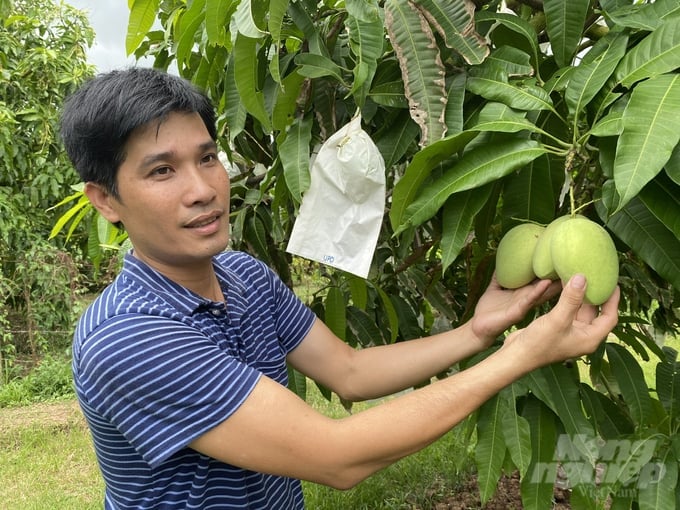
Vietnam has received notifications from WTO member states regarding various measures to prevent the spread of diseases in the export and import of agricultural products from Vietnam. Photo: Le Hoang Vu.
According to Mr. Nam, the Chinese market has become increasingly stringent within the last two years. Namely, the country has imposed numerous trade barriers that require Vietnamese agricultural export businesses to meet the necessary requirements for food safety and hygiene, including the need for unit production codes. Additionally, Vietnamese agricultural product exports to China are subject to mandatory irradiation as well as disease-free requirements before gaining entry to the country for consumption.
"The objective of SPS is to safeguard the health and rights of humans, animals, and plants in each member state. In addition, SPS aims to limit unnecessary trade barriers among member states," affirmed Mr. Nam.
Located in the heartland of rice and fruit production in the Mekong Delta region, Dong Thap's agricultural sector has experienced rapid development, significantly contributing to the province's socio-economic progress. Dong Thap province is committed to implementing an agricultural restructuring plan with the motto "Cooperation, linkage, and market." The plan identifies five key sectors for resource concentration: rice, mangoes, lotus, pangasius, and ornamental flowers. Under this strategy, Dong Thap's agricultural sector proactively collaborates with various agencies and local governments to reorganize production. Moreover, the province encourages stakeholders to transition from the traditional "agricultural production" mindset to an "agricultural economy" mindset. This approach involves eliminating the isolation of agricultural production into separate, independent regions.
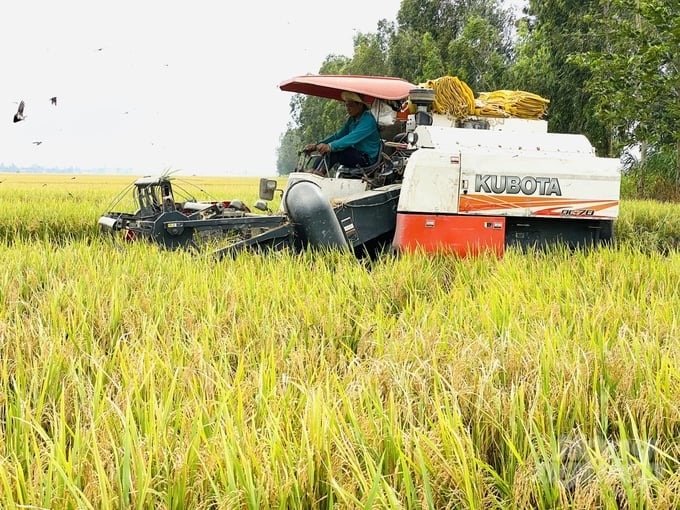
The European Union issued 31 violation warnings with regards to the excessive levels of pesticide residues in Vietnamese agricultural products in the first six months of 2023. Photo: Le Hoang Vu.
Ms. Nguyen Thi Tuyet Hoa, Deputy Director of the Dong Thap province's Sub Department of Crop Production and Plant Protection, stated that international integration has opened up various opportunities to boost the export of key agricultural products, such as rice and vegetables, by reducing import tariffs. Moreover, with its agricultural advantages and natural conditions, Dong Thap province's agricultural products possess unique strengths in the global market.
Firstly, the demand for grains and food products is on a significant rise. In the context of global climate change, economic and political fluctuations, and concerns regarding food security, opportunities have emerged for Vietnam's agricultural exports. Accordingly, Dong Thap province's agricultural products have been exported to various international markets, including major playes such as\ the United States, the European Union, China, and Japan. Dong Thap province holds numerous advantages in the producton of key agricultural items such as mangoes, longans, and seedless fruits that meet technical standards and cater to market demands. Furthermore, the substantial production capacity allows the province's agricultural products to meet the high consumer demands in the Chinese market.
Secondly, Vietnam has engaged in multiple new-generation Free Trade Agreements (FTAs). The majority of these agreements involve strict commitments. These agreements include regulations regarding the origin of agricultural products. Dong Thap province has formulated a plan to implement and manage a traceability system which enhance the traceability of product origins, thereby facilitating international integration and ensuring product quality and safety.
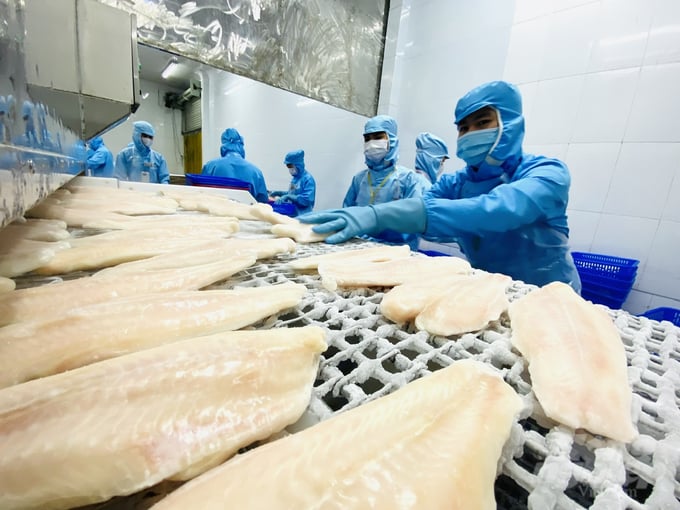
The objective of SPS is to safeguard the health and rights of humans, animals, and plants in each member state. In addition, SPS aims to limit unnecessary trade barriers among member states. Photo: Le Hoang Vu.
Thirdly, the rapid and robust development of science and technology, in combination with the application of digital platforms, will provide numerous opportunities for the transformation of the agricultural value chain. Dong Thap province has prioritized digital transformation within its agricultural sector. Digital technology will support the transition from traditional production practices and distribution systems to smart production and modern integrated distribution systems with online platforms and connections to other countries.
Fourthly, the development of the agricultural export supply chain will be prioritized. Accordingly, the supply chain will efficiently provide international markets with high-quality, safe, convenient, competitively priced products that offer a diverse selection and are environmentally friendly, satisfying the needs of consumers in the global market.
The SPS serves as the official channel for information exchange between Vietnam and WTO state members regarding SPS issues. The office provides notifications and national queries with regards to sanitary and phytosanitary measures in Vietnam to assist the Minister of Agriculture and Rural Development in fulfilling transparency obligations as required by the World Trade Organization Agreement on the Application of Sanitary and Phytosanitary Measures. It also disseminates information and inquiries concerning the provisions of sanitary and phytosanitary measures, requesting WTO member countries to provide information on risk assessment measures, inspections, checks, and other issues related to sanitary and phytosanitary measures.
Translated by Nguyen Hai Long
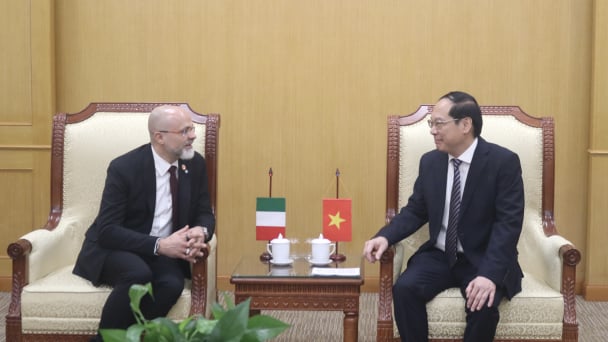
(VAN) During the working session with Deputy Minister Le Cong Thanh, Professor Francesco Corvaro, Italian Climate Change Envoy, reaffirmed Italy's commitment to supporting Vietnam in climate change response.
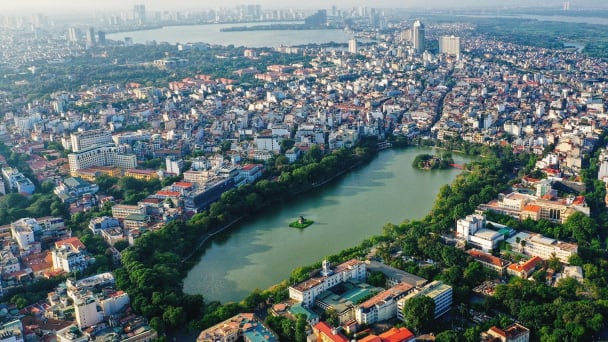
(VAN) After the merger, key leadership personnel of the provinces must consult with the General Secretary, key leaders, and the Standing Secretariat.
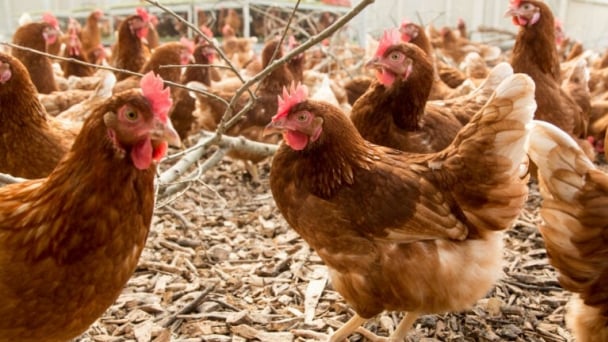
(VAN) The latest Business Benchmark on Farm Animal Welfare (BBFAW) reveals steady progress on farm animal welfare across the global food industry.

(VAN) Green credit is a financial policy that effectively supports environmentally friendly projects and activities today.
/2025/04/09/1049-2-165919_630.jpg)
(VAN) With a revenue of less than VND 30 billion/year, packaging producers are exempted from EPR liability under Decree No. 05/2025 newly issued.
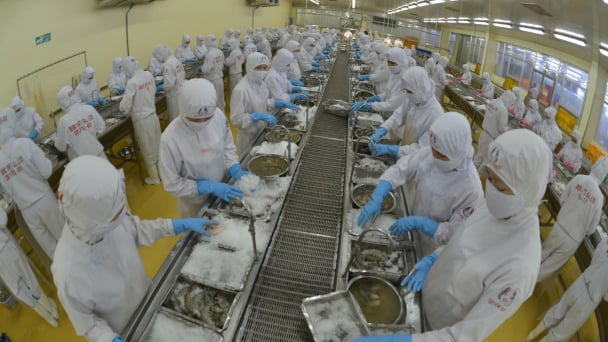
(VAN) Ministry of Agriculture and Environment has issued an Action Plan for sector's development in the coming period, aiming for a growth rate of 4% or higher and an export turnover of USD 65 billion.
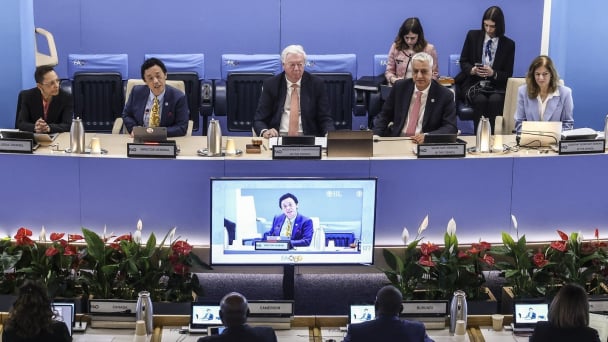
(VAN) The 177th Session of the FAO Council opened on Monday at the Organization’s headquarters in Rome.